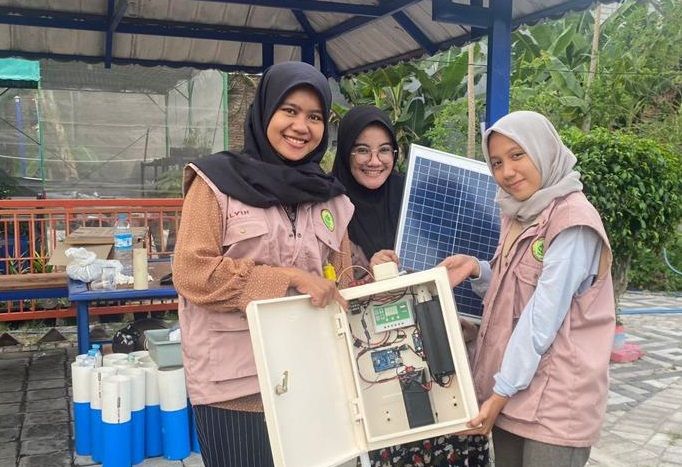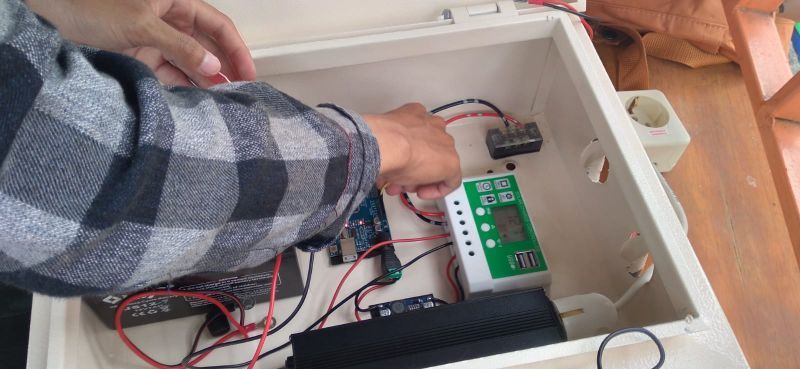Eco Campus Team Creates Environmentally Friendly Power Generator

Unesa.ac.id, SURABAYA—Amid the 'storm' of the energy crisis threatening various parts of Europe, Eco Campus, Faculty of Mathematics and Natural Sciences (FMIPA) at Universitas Negeri Surabaya (UNESA) has created an innovation in renewable energy. They designed "Microhydro," a power generator using water and solar energy (hybrid).
The device is the work of the Eco Campus student team, FMIPA. The team leader, Natasyah Valencia Nilafah Gea, said that the device they created combines microhydro power, which utilizes water flow, with solar power.

Equipped with Flood Detector
Microhydro, continued Natasyah, is not only environmentally friendly but also economical because the cost of making this device is relatively cheap and does not require fuel. Additionally, this device is equipped with features such as displaying the amount of power generated and has a sensor to detect floods because its use depends on river flow.
According to her, the use of microhydro technology is considered quite effective, especially for areas with rivers that have a strong flow. "If, for example, the water flow is insufficient and weak, solar power or sunlight can be used," she explained.
The working system of this device is that the water flow turns the generator, then generates electrical energy that will enter the controller connected to the battery. The controller will then input the electrical flow into the battery with stable voltage to provide power to the inverter, creating electrical energy.
"For now, we are still making it on a small scale, so the output is still used for low-power electrical equipment such as lamps," she explained.
Dra. Winarsih, M.Kes., as the Eco Campus advisor, also mentioned that in the future, this device will be developed on a larger scale to create environmentally friendly technology that can certainly be applied in the UNESA environment and even the wider community.
Not only microhydro, Eco Campus also presents other innovations in line with the climate village program (PROKLIM) and has also been exhibited at the Jatim Environment Exhibition 2022 at the Jatim International Expo (JIE) Convention Exhibition, Surabaya in mid-September.
"Our principle is how this innovation leads to new renewable energy. Besides being more environmentally friendly, it also anticipates the occurrence of an energy crisis like the one affecting several European countries now," she concluded.[Public Relations UNESA
]
Author: Mohammad Dian Purnama
Photo: PPK Ormawa Eco Campus FMIPA Documentation Team
Share It On: